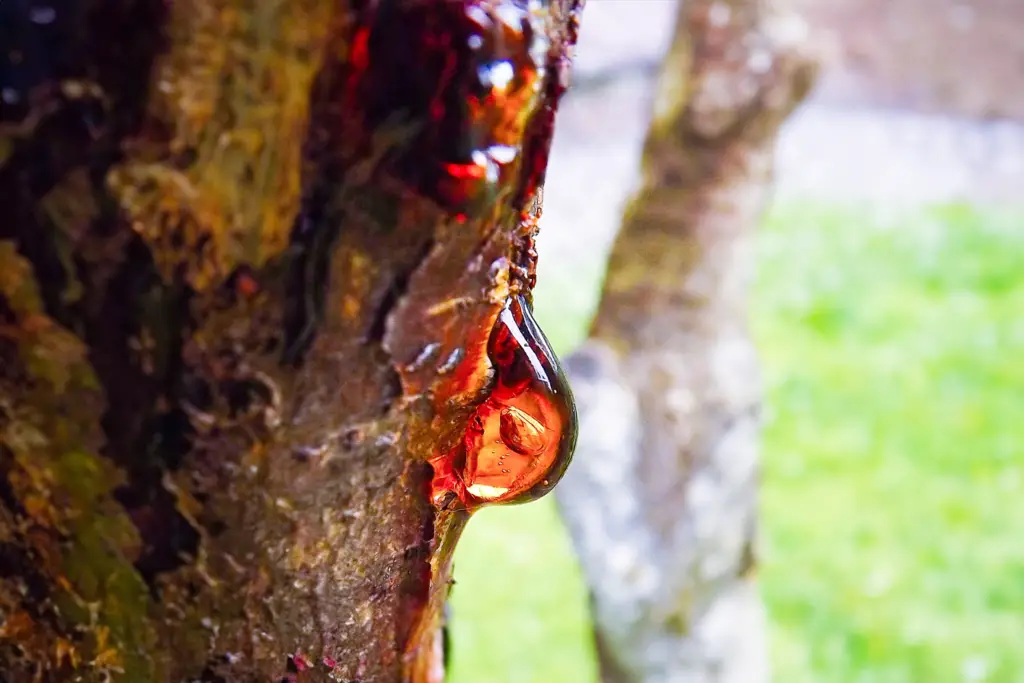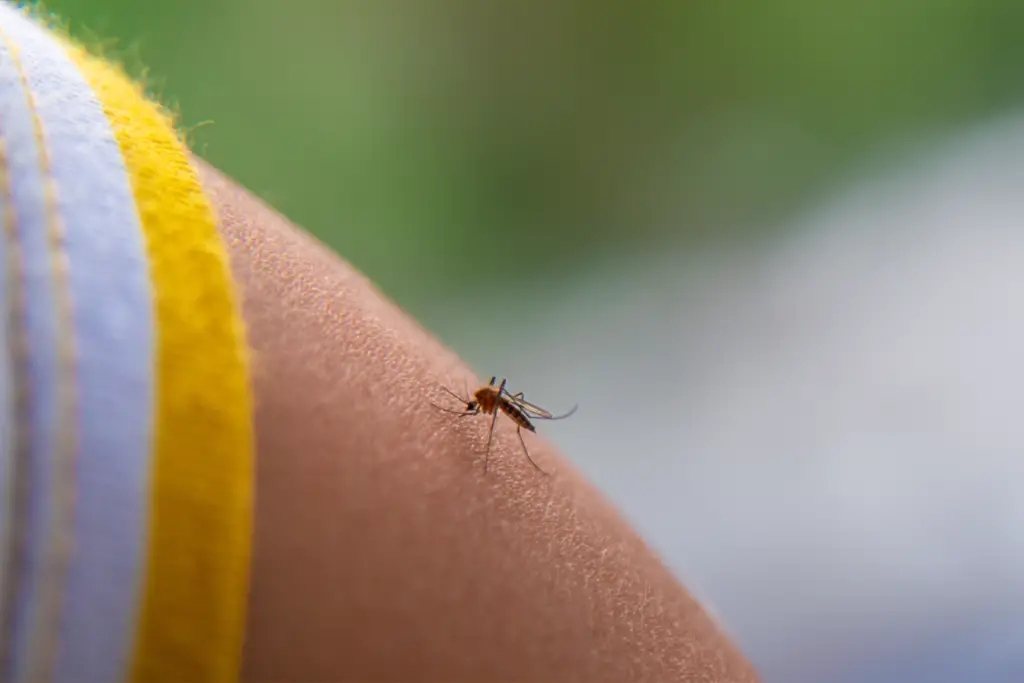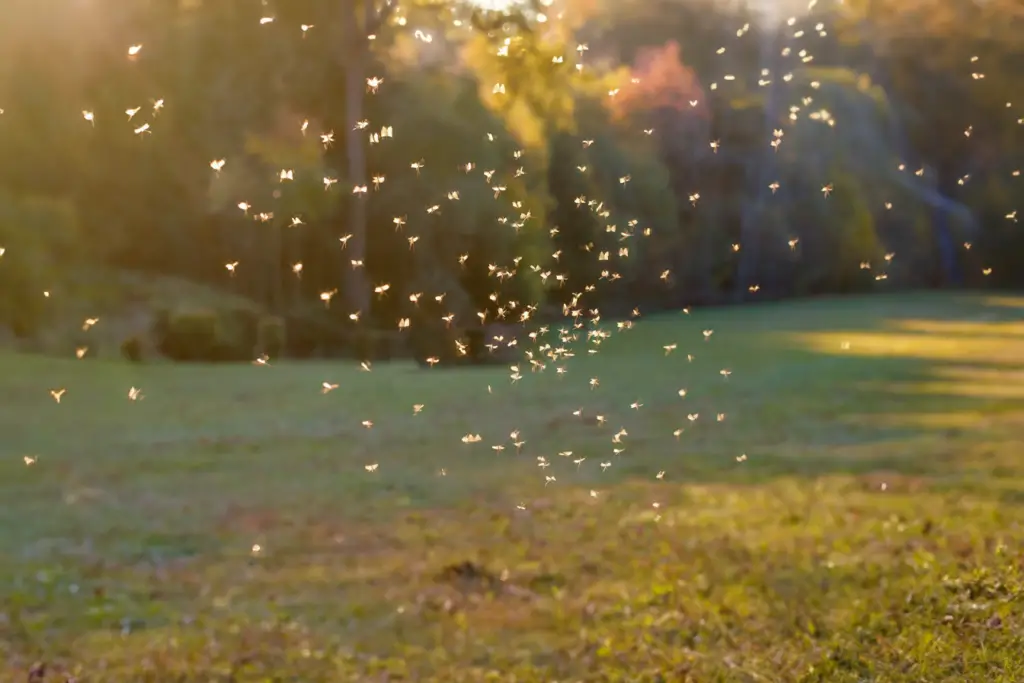
Mosquitoes, often associated with their irritating bites, have dietary habits that might surprise you. Both male and female mosquitoes primarily rely on plant sugars as their main food source. They feast on the nectar, honeydew, or plant sap to fulfill their energy requirements. Interestingly, while this sugary diet is enough for males throughout their lives, female mosquitoes have an additional nutritional need that drives them to bite humans and animals.
The reason female mosquitoes seek out blood is for the protein and iron necessary to produce their eggs. A single blood meal can provide enough resources for a female mosquito to develop and lay several batches of eggs. Contrary to popular belief, not all species of mosquitoes are attracted to humans; some prefer birds, amphibians, or reptiles, depending on their natural habitat.
Dietary Habits of Mosquitoes
Mosquitoes have diverse feeding patterns, with males and females having different sources of sustenance. Understanding these dietary habits can give you insights into their behavior and life cycle.
Blood Feeding
Female mosquitoes need blood to nourish their developing eggs, which is why they seek out animals – including you – to bite. This blood meal is packed with the necessary protein and iron to ensure their offspring can mature. Different species have varied preferences; some may choose birds over humans, but if their preferred host is scarce, they won’t hesitate to feed on what’s available.
Plant and Nectar Feeding
Contrary to popular belief, both male and female mosquitoes sustain themselves primarily on plant sugars. They feed on nectar, plant sap, or honeydew, utilizing the carbohydrates for energy. This is their main source of nutrition, and it’s essential for their daily activities like flying and mating.
Feeding Behavior and Preferences
Mosquitoes exhibit distinct feeding habits that can influence your chances of being bitten. Understanding these behaviors is key to avoiding itchy encounters.
Feeding Frequency
Female mosquitoes require blood to develop their eggs, typically seeking a meal every two or three nights. Males, however, sustain themselves on plant sugars and do not bite. During early summer, mosquitoes are less likely to feed on humans and prefer avian hosts; however, they switch preferences to humans later in the season.
Choice of Hosts
Mosquitoes select their hosts based on a combination of smell, heat, and visual cues. Studies have shown that in early summer, a significant portion feed predominantly on the American robin. As the season progresses, many species of mosquitoes begin to feed on humans, mainly in the late summer and early fall. They can distinguish their preferred hosts among a wide range of animals by evaluating the scent and carbon dioxide output.
Lifecycle and Nutrition
Understanding a mosquito’s diet is crucial because it directly affects their ability to reproduce and thrive. The lifecycle of mosquitoes dictates their nutritional needs, which vary from the aquatic larval stage to the airborne adult stage.
Larval Diet
As a mosquito larva, you feed almost continuously. Your diet consists mainly of microorganisms such as bacteria, algae, and protozoa, which you filter from the water using your mouth brushes. Oxygen is also crucial for you, so you often come to the water’s surface to breathe through your siphon or body wall.
Adult Mosquito Nutrition
Once you emerge as an adult, your diet shifts significantly. All adult mosquitoes, both male and female, sustain themselves on sugary fluids like nectar, plant sap, or honeydew. This sugar is vital as it provides you with energy to fly and mate. However, female mosquitoes also require blood meals to obtain the necessary protein for egg development, while you, as a male, will continue to feed only on sugar sources.
Environmental Impact on Mosquito Diet
Your local environment plays a significant role in determining what mosquitoes feed on. As you explore different ecosystems, you’ll notice that mosquito diets can vary quite a bit based on available resources.
During their larval stage, mosquitoes are aquatic and typically feed on microorganisms such as bacteria and protozoa, as well as algae and small organisms that are found in their watery habitats. The specific makeup of these resources can affect mosquitoes’ growth and development into adulthood (Implications of diet on mosquito life history traits and pathogen transmission).
- Larval Diet: Varied microorganisms and organic material
- Bacteria
- Protozoa
- Algae
- Organic detritus
Once they become adults, male and female mosquitoes both seek out sugar sources for energy, often in the form of nectar from flowering plants. However, the females also require protein to develop their eggs, which they typically obtain from blood meals (Feeding Habits of Hungry Mosquitoes).
- Adult Diet:
- Both genders: Nectar, plant sap, honeydew
- Females only: Protein from blood meals
Environment dictates availability of both plant-based sugars and potential blood hosts. For instance, mosquitoes in urban settings might rely more on human blood, while those in forested areas could feed more on birds or other mammals. Changes throughout the seasons also influence feeding patterns, leading to shifts from avian to mammalian hosts as temperatures and ecosystems transform (Exploring the Mosquito Diet).
Your awareness of these environmental influences can deepen your understanding of mosquito feeding behaviors and their potential impact on ecosystem health and disease transmission.
Frequently Asked Questions
In this section, you’ll find concise answers to some of the most common questions regarding the diets of mosquitoes.
What do mosquitoes feed on if not blood?
Mosquitoes primarily rely on plant sugars for nourishment. They extract this sugary substance from the nectar or honeydew of plants, which provides the energy they need to survive.
What is the typical diet of a female mosquito?
Female mosquitoes have a two-fold diet. While they consume plant sugars like males, they also require blood to get the necessary protein for egg production. This protein-rich blood can come from various animals, including, but not limited to, humans.
What sustains male mosquitoes nutritionally?
Unlike their female counterparts, male mosquitoes only feed on plant nectars and other sugary substances. They lack the biting mouthparts needed to extract blood, so they depend entirely on these sugary sources for sustenance.
Are humans a preferred food source for any mosquitoes?
While some mosquito species do feed on humans, they are not always the preferred host. Many species naturally prefer birds or other animals. That said, when given the opportunity or due to lack of other resources, some species may feed on human blood.
Why is blood a necessary part of some mosquitoes’ diets?
Blood provides female mosquitoes with the essential components, such as proteins and iron, for the development of their eggs. Without a blood meal, they cannot produce eggs that will hatch successfully.
What attracts mosquitoes to their feeding sources?
Mosquitoes utilize their keen sense of smell to detect plant nectar. When seeking blood, they are drawn by carbon dioxide, body odors, and warmth emitted by potential host animals, which signal a food source to them.
Driven by a passion for those tiny creatures that rule our world, we at Bug Domain strive to be your go-to resource for information on insects.




